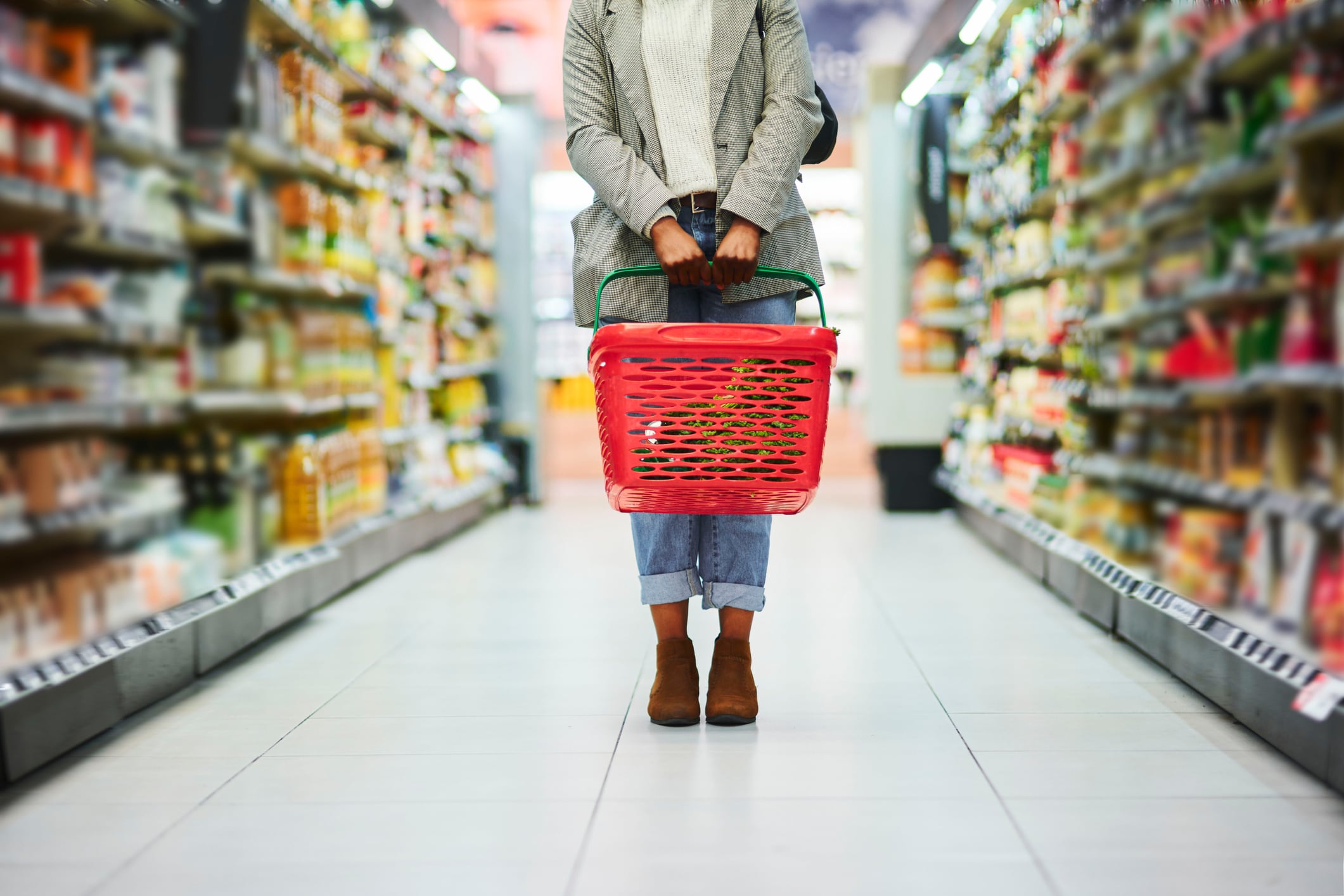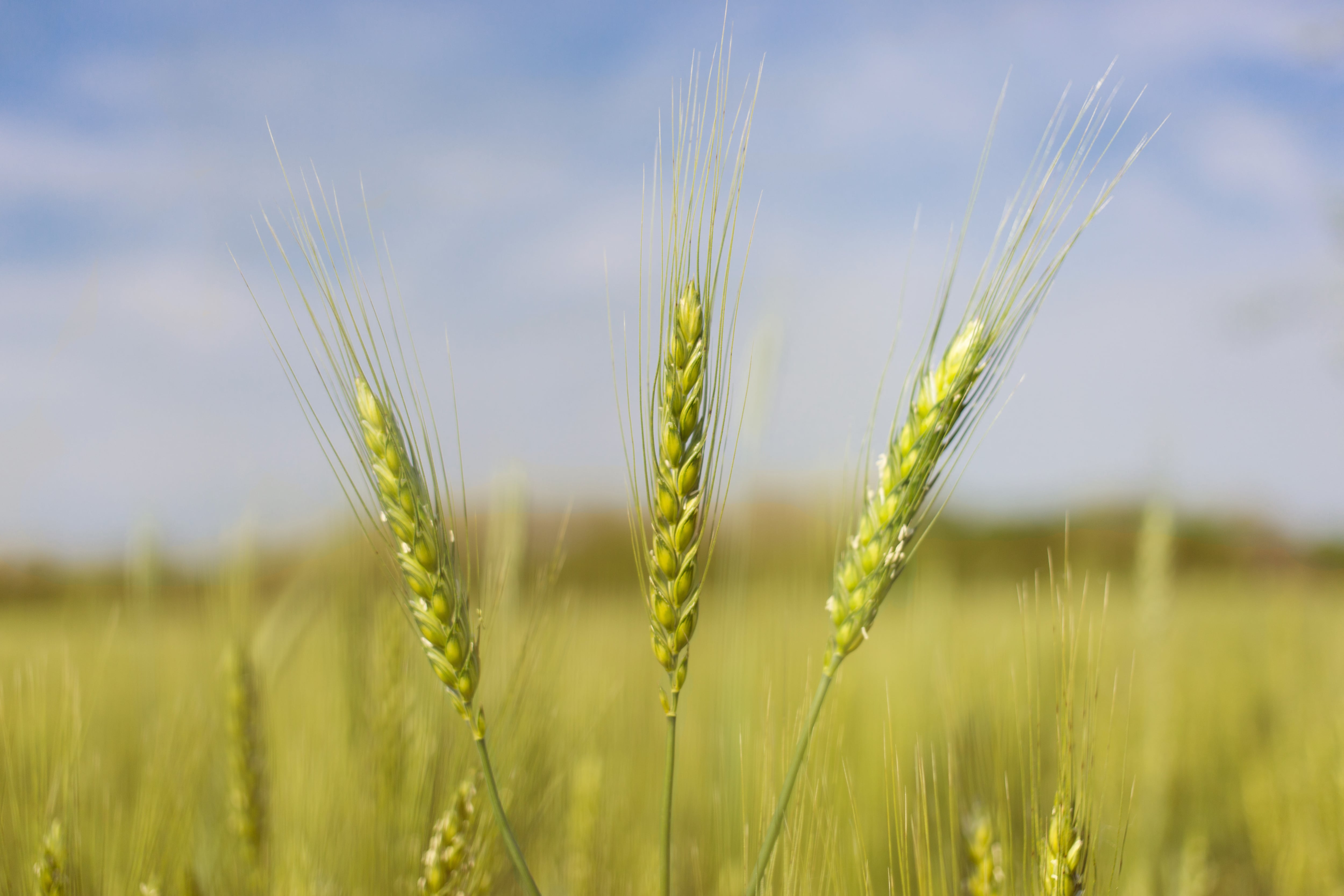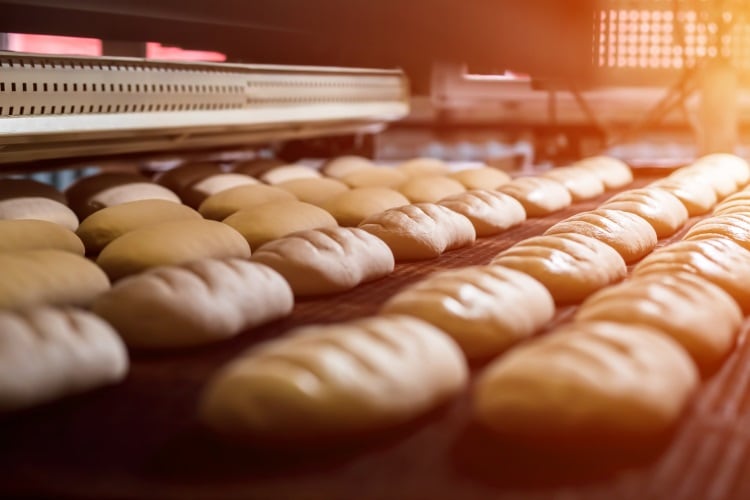Key takeaways:
- Shoppers talk up sustainability, but price, taste and convenience still rule the basket.
- Consumers back eco features they can see – packaging, waste reduction, conservation – more than abstract CSR promises.
- The old ‘green means worse’ assumption is disappearing: eco products are increasingly judged on equal footing.
Consumers love to say they care about the planet. In PwC’s 2024 Voice of the Consumer survey, more than 80% of shoppers claimed they’d pay extra for sustainable goods. On average, they said they’d spend about 9.7% more – a number that’s barely shifted from the year before.
But when it comes to a loaf of bread or a pack of cookies, old habits win. A systematic review published in 2022 confirmed what most in food already know: price, taste, convenience and health usually trump sustainability when the basket is filled. Many shoppers also admit they’re unsure what ‘sustainable’ even means when it comes to food.
That’s the well-worn attitude-behavior gap. People like the idea of green choices, but unless the benefits are obvious – fresher bread, healthier snacks, longer shelf life – they often don’t follow through.
The global consumer class keeps expanding. Defined as those spending at least $12 a day, it numbered 4 billion people last year and is projected to hit 5 billion by 2031. On paper, that’s good news for food companies. The catch though, is that consumer trust isn’t keeping pace. Executives tend to overestimate how highly shoppers rate their brands. Unless credibility can be rebuilt - particularly around sustainability - companies risk losing share in a market that’s otherwise swelling.
What makes shoppers bite or walk away
Price remains the hardest barrier. Even consumers who describe themselves as eco-conscious hesitate when greener options are more expensive but don’t deliver clear extra value.
Taste, health and convenience are the non-negotiables. Snacks are bought for comfort, bread for routine. If a product doesn’t taste good, stay fresh, or slot easily into busy lives, eco-credentials won’t save it. A 2023 Italian study underlined this, finding that when people chose bakery products, health and well-being scored higher than environmental concerns. Globally, 95% of shoppers say quality is the top driver, with 74% highlighting nutrition.
What does move the dial are the features people can see and feel. PwC’s pulse survey highlights three standouts: production methods that reduce waste and boost recycling (40%), eco-smart packaging (38%) and visible efforts around nature and water conservation (34%). Broader messaging – a company’s CSR program (20%) or community projects (17%) - sits far lower down the list.
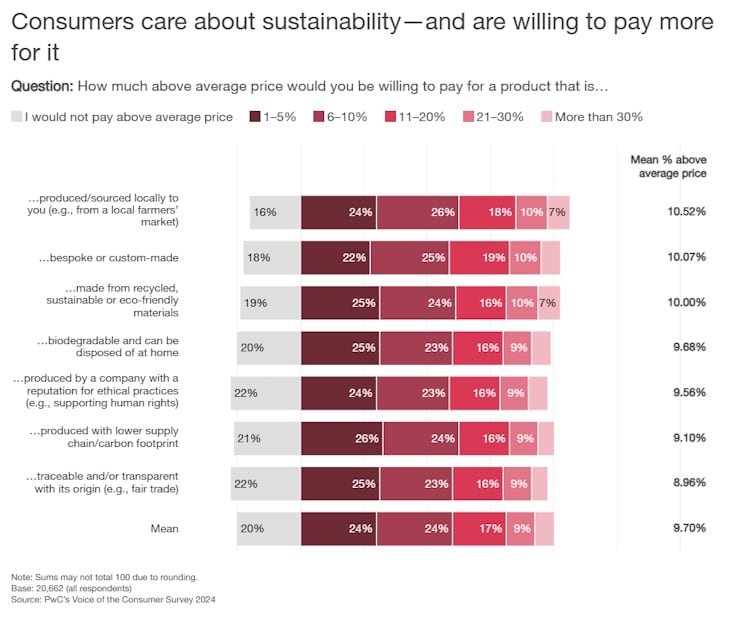
A European study further backs this up, confirming consumers would being willing to pay a €0.30 premium for sustainably produced or sourced foods. It’s not a huge number, but in categories like bakery and snacks - where margins are tight and volumes high - even small willingness to pay can add up to real market movement.
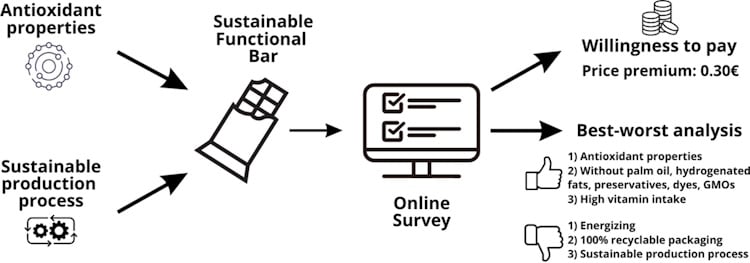
Shoppers also crave benefits they can see and feel. Compostable films that keep cookies crisp, coatings that stop muffins from going stale, recycled wrappers that still feel sturdy – these are the wins that make eco real. Lofty talk about carbon footprints rarely seals the deal.
And don’t forget transparency. Vague ‘green’ claims backfire fast. Consumers want clear proof: why this packaging is compostable; how this snack cuts waste. More are scanning QR codes to check a brand’s sustainability story.
Packaging, too, is a powerful lever. It’s the most visible marker of sustainability and often the deciding factor. In the US, 43% of consumers say packaging sustainability is very important to their purchase decisions. Younger shoppers are especially open to edible coatings and plant-based films, seeing them as both high-tech and climate-positive.
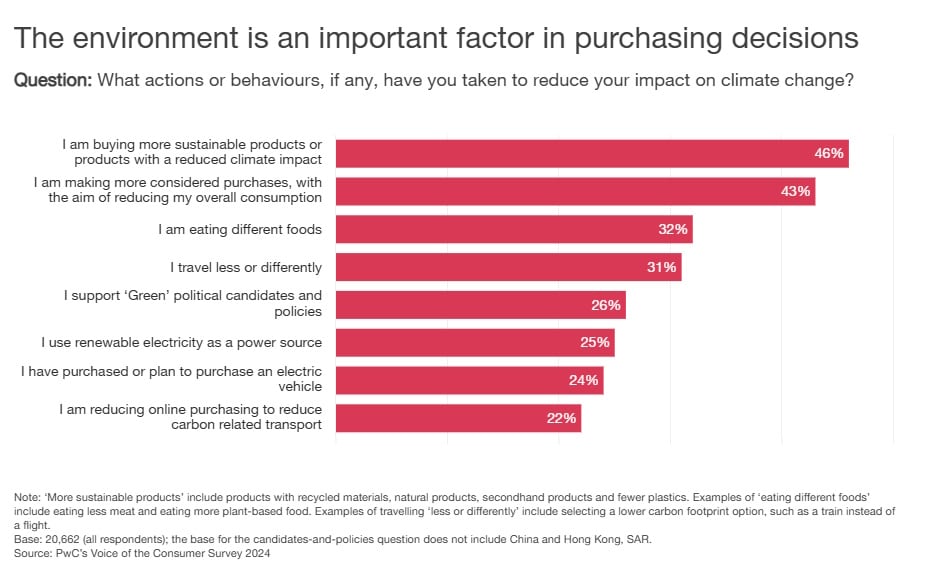
From ‘cardboard cookie’ fears to eco as an edge
For years, many brands assumed eco-friendly meant lower performance. This so-called ‘sustainability liability’ was baked into product strategy: If a company changed features to make a product greener, shoppers would assume something had been sacrificed.
“Since a company has to change certain features of its product to make it eco-friendly, the logic goes, the firm must have sacrificed performance,” says Alexander Chernev, professor of marketing at Kellogg School. “Because it sounds intuitive, we tend to accept it without necessarily questioning it.”
But his research suggests those fears are overblown. “The sustainability-liability intuition might not be as strong as one might have thought,” Prof Chernev explains. In experiments with thousands of consumers, his team found virtually no difference in how eco-friendly and conventional products were rated.
Even during COVID, when effectiveness was top of mind, sustainable versions held their ground. “Again, there was virtually no difference,” he notes.
The surprise wasn’t just the finding, but how elusive the liability was to prove. “We assumed it would be very easy,” Prof Chernev recalls. “But we could not replicate that.”
Their follow-up text analysis of billions of words in news and Wikipedia data shows how perceptions have shifted. Terms like ‘ecological’ and ‘recycled’ are now more likely to sit next to ‘efficient’ and ‘reliable’ than ‘fragile’ or ‘ineffective’. That change in language mirrors what’s happening in the aisle: sustainability is no longer shorthand for compromise.
It’s a significant shift for the bakery and snacks categories. The old fear of cardboard-tasting cookies or flimsy compostable bags is fading. Eco is increasingly read as a marker of innovation, ethics and quality.
Who’s making green work in practice
Some food brands are already proving how to make eco stick with consumers.
PepsiCo has replaced plastic rings on Frito-Lay multipacks with recyclable paper and is piloting compostable chip bags. Alter Eco built its identity around compostable chocolate wrappers and turned it into a loyalty driver. In the UK, Warburtons has tested paper bread bags, while Kellogg’s has committed to making all packaging recyclable, reusable or compostable by 2025.
What links these moves isn’t just the sustainability claim. Each is framed around shopper benefit: fresher bread, easier recycling, less kitchen clutter. That’s what makes the message land.
How to turn eco curiosity into eco checkout
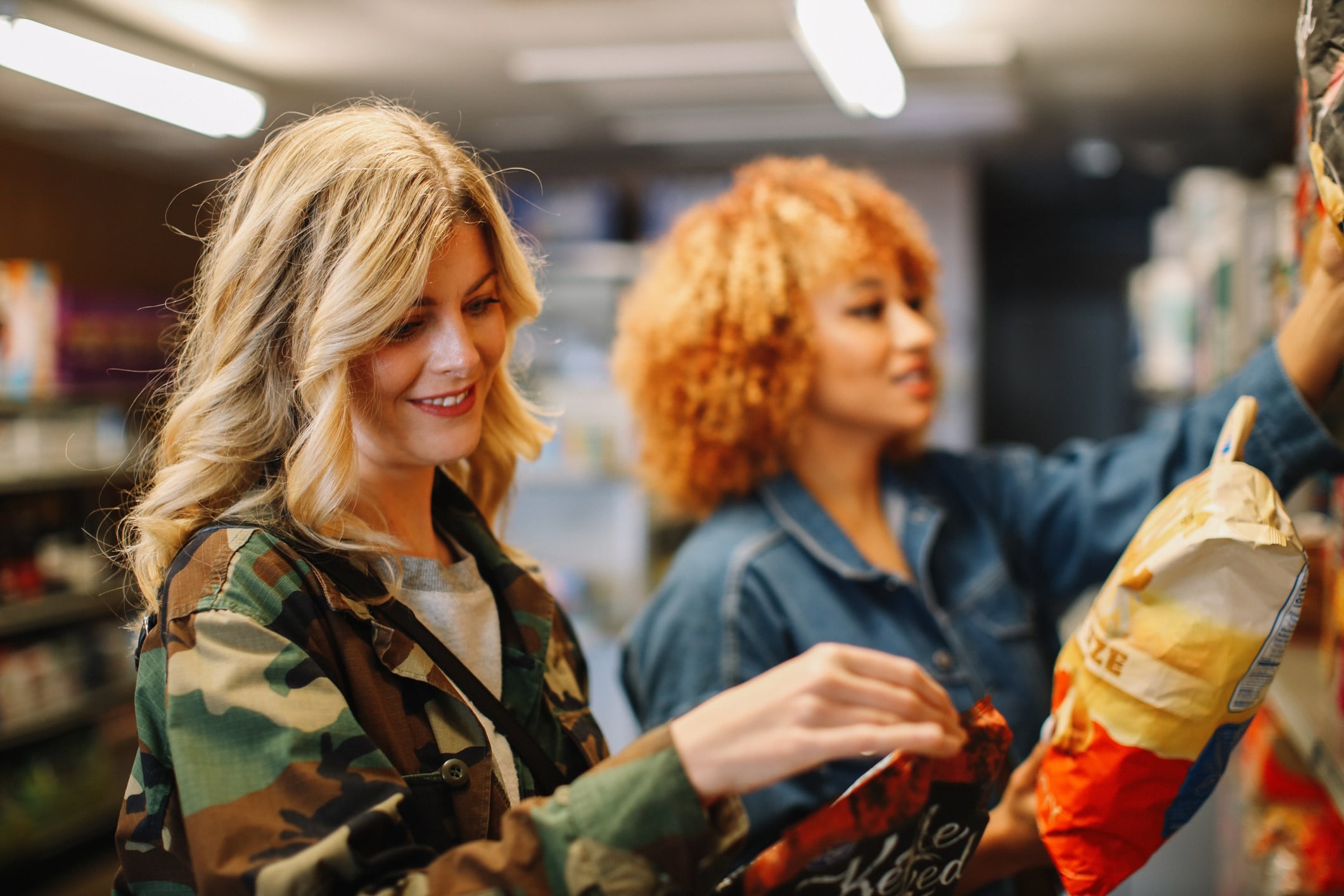
So how do you close the gap between what shoppers say and what they buy? A few priorities stand out.
- Educate without lecturing. Packaging and campaigns should explain what makes a product sustainable and why that matters to the shopper.
- Lead with the wins consumers care about: taste, health, freshness, convenience. Eco should feel like an extra perk, not a trade-off.
- Stay transparent. Use certifications, hard numbers and clear instructions. Consumers can sniff out greenwashing a mile off.
- Keep innovating in packaging. Compostable, edible, plant-based solutions only win trust if they perform as well as plastic or better.
- Consumers say they want greener snacks and bakery products and the research suggests they’re warming up to them more than ever. But they won’t settle. The brands that deliver indulgence and convenience with eco seamlessly baked in are the ones that will win.
- And never forget that sustainability can’t just be good for the planet. It has to be good for the tastebuds, too.
Not to be missed
FoodNavigator’s Climate Smart Food broadcast series kicks off on Sep tember 9, 16 and 23, bringing together voices from Nestlé, KIND Snacks, Ingredion, ING Bank, Newcastle University and more.
From smart farming and resilient ingredients to low-impact packaging and emissions reduction, this free webinar series cuts through the noise with practical strategies to tackle climate risk.
Can’t join live? Register now for free access to the on-demand sessions.
Studies:
van Bussel, Lenneke & Kuijsten, Anneleen & Mars, Monica & Veer, Pieter. (2022). Consumers’ perceptions on food-related sustainability: A systematic review. Journal of Cleaner Production. 341. 130904. 10.1016/j.jclepro.2022.130904.
Anna Uliano, Marcello Stanco, Giuseppe Marotta, Concetta Nazzaro. Combining healthiness and sustainability: An analysis of consumers’ preferences and willingness to pay for functional and sustainable snack bars. Future Foods, Volume 9, 2024, 100355, ISSN 2666-8335. https://doi.org/10.1016/j.fufo.2024.100355.
Alexander Chernev, Sean Blair. When Sustainability is Not a Liability: The Halo Effect of Marketplace Morality. Journal of Consumer Psychology, Volume 31, Issue 3, July 2021. https://doi.org/10.1002/jcpy.1195
Chernev, A., Blair, S., Böckenholt, U., & Mishra, H. (2024). Is Sustainability a Liability? Green Marketing and Consumer Beliefs About Eco-Friendly Products. Journal of Public Policy & Marketing, 44(2), 261-275. https://doi.org/10.1177/07439156241264286 (Original work published 2025)


